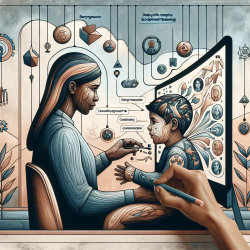Introduction to Trust-Based Relational Intervention (TBRI)
In the realm of child therapy, particularly for those who have experienced complex developmental trauma, the Trust-Based Relational Intervention (TBRI) emerges as a transformative model. Developed at the Texas Christian University Institute of Child Development, TBRI is designed to address the multifaceted needs of children who have endured foster care, orphanage-rearing, or other forms of trauma. This blog delves into the core principles of TBRI and how practitioners can integrate these strategies to improve therapeutic outcomes.
Understanding Complex Developmental Trauma
Complex developmental trauma is characterized by the experience of multiple, chronic, and prolonged traumatic events. Children who have faced such adversities often exhibit a range of psychological and behavioral issues. Traditional therapeutic models may fall short in addressing the intricacies of these challenges. TBRI, however, offers a comprehensive framework that emphasizes the importance of nurturing, stable relationships in the healing process.
The Core Principles of TBRI
TBRI is grounded in three primary principles: Empowerment, Connection, and Correction. These principles are designed to address the physical, relational, and behavioral needs of children.
- Empowerment: Focuses on meeting the ecological and physiological needs of the child. Ensuring that basic needs such as nutrition, hydration, and sensory processing are addressed is crucial for creating a stable foundation for further therapeutic work.
- Connection: Emphasizes the development of secure attachment relationships through awareness, engagement, and attunement. Techniques such as playful engagement and attunement activities are used to build trust and foster emotional connections.
- Correction: Aims to teach self-regulation and appropriate behavioral responses. This involves proactive strategies like role-playing and script practice, as well as responsive strategies to address challenging behaviors.
Implementing TBRI in Practice
Practitioners can integrate TBRI principles into their therapeutic practices by creating environments that promote felt-safety and trust. This involves consistent routines, predictable transitions, and the use of sensory activities to support emotional regulation. Additionally, caregivers play a pivotal role in the TBRI model, as they are often the primary agents of change in the child's environment.
Encouraging Further Research
While TBRI has shown promising results, ongoing research is essential to further validate and refine its components. Practitioners are encouraged to engage with the empirical evidence supporting TBRI and contribute to the growing body of research. By doing so, they can enhance their understanding and application of trauma-informed care, ultimately leading to better outcomes for children.
To read the original research paper, please follow this link: Trust-Based Relational Intervention (TBRI): A Systemic Approach to Complex Developmental Trauma.










